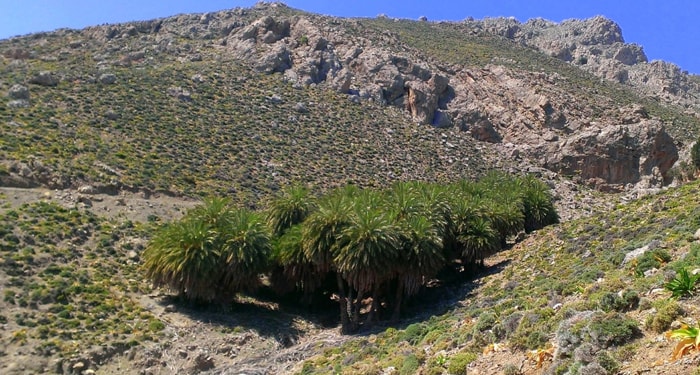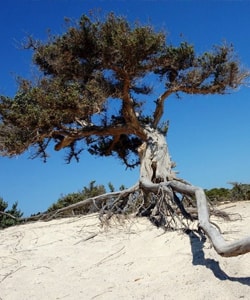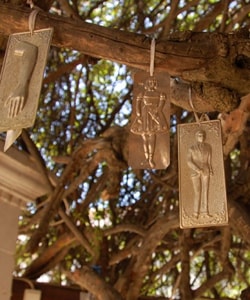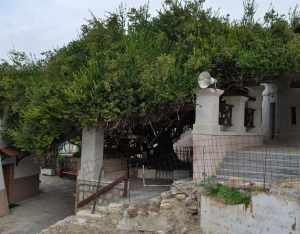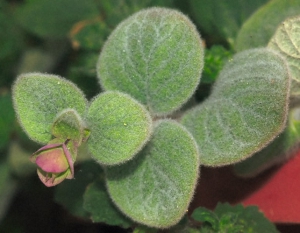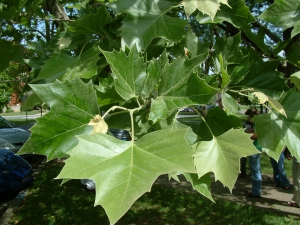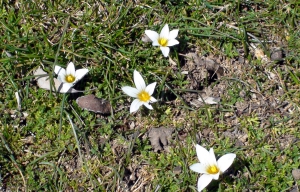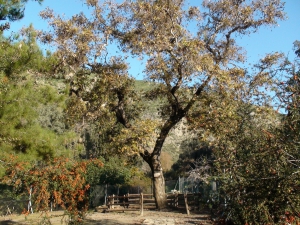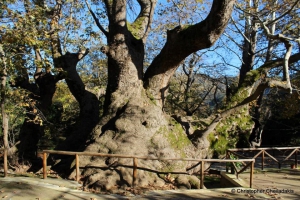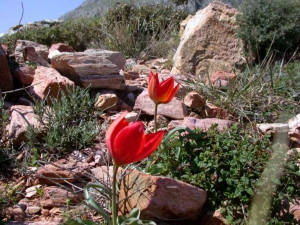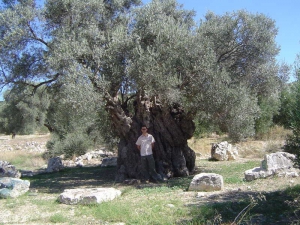Paliani Monastery is one of the oldest monasteries in Crete and it has as a trademark a very old myrtle tree (Myrtus communis). This specific myrtle is considered sacred (Holy Myrtle) and is honored on September 24. Inside the trunk of the Holy Myrtle, as they say, is believed to be the icon of Panagia Mirtidiotissa (Virgin Mary of Myrtle).
Dittany (Origanum dictamnus) (Greek: diktamos) is an endemic herb of Crete, the most famous of all, which is mainly used as a tea and as a therapeutic sip. Its name is taken after the Dikti Range (Lassithi Mountains), though it is also met in all ranges of Crete.
The plane tree can be met in every place of Greece (valleys, ravines, lakes, river banks and village squares). It also found almost everywhere in Crete and is one of the most typical plants of the Cretan flora. Perhaps no other tree, except the olive tree, is so closely associated with the daily life of the Cretans, as the plane tree because has been the spectator of all historical local events.
The Cretan tulip (Tulipa cretica) is the most prevalent type of tulip on Crete, which is endemic to Crete. It grows in areas with low vegetation, rocky slopes and plains, from sea level up to 2000m.
Crete hosts an extremely rare and endemic variety of plane trees (Platanus orientalis var. Cretica) with about 50 trees being reported throughout the island. The characteristic feature of this variety is that it is evergreen, unlike the common deciduous plane trees.
In Vlatos village, district of Kissamos, we meet one of the many huge plane trees of Crete. This specific legendary plane tree has been declared a nature monument by the Greek State.
The red tulip of Goulimis (Tulipa goulimyi) is extremely rare in Crete, as the only confirmed population is limited to a very small area of the peninsula Gramvousa. The population of Crete has shrunk too much, mainly because of the cultivation and tourism. Other less endangered populations are found on Kythera, Antikythera and South Peloponnese.
The Monumental olive tree of Kamilari has been declared by the Association of Cretan Olive Municipalities as a natural monument due to its enormous size. The exact age is unknown. Most similar trees in Crete are aged around 2000 years. But it’s a very powerful and peaceful place also worth the visit.






